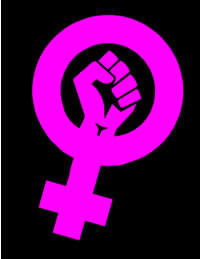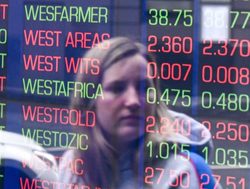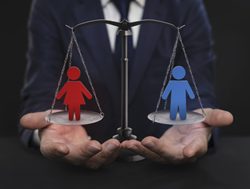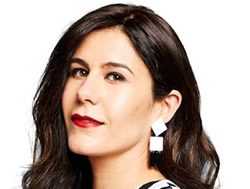Annie Liao Jones* says that defining feminism according to its various nuanced, personal meanings would help us celebrate our differences and benefit everyone.
 Feminism has one definition.
Feminism has one definition.
According to the Oxford Dictionary: “The advocacy of women’s rights on the basis of the equality of the sexes.”
That’s it.
The movement surrounding feminist principles is one striving for ultimate equality between the sexes in all aspects of life.
But the way feminists define it for themselves lends a lot more insight into the word, the movement, its history, and its future.
Some of the female feminists I know describe feminism with a lot of nuance around its basic definition.
“My right to not have to be ‘the mediator’ at work when there are disagreements.”
“My right to be able to simply say ‘no’ to someone and not have to explain my reasoning or have it qualified by anything else.”
Or what several of my male employees have pointed out: “My right to work in advertising, in creative marketing, without friends, family, and the public ridiculing me for doing a ‘feminine’ job just because it’s more liberal arts than STEM.”
If you ask what feminism means to me and how it plays out in my daily life (isn’t a better quality of life what we’re all really striving for?), I would say it’s about having the freedom to be exactly who you are, especially in the workplace.
My right to fight HR for having to wear pantyhose to the office, for example, even though I lost.
Feminism to me is the rebellious act of being wholly yourself.
Striving not to dress in a masculine way in order to be taken seriously but to be able to passionately be who I am, overflowing closets of shoes, makeup, and all.
To be judged by my performance only.
And while I pride myself on hiring smart, open-minded, and bold people, it doesn’t fix the fact that everyone in my organisation was raised in a society that has a systemic issue where women and men alike think women have to look more like men in business settings.
Forget about anything that proves real talent — better spend my money on pantsuits.
Feminism is not just a women’s issue, but an issue of shared humanity
I believe feminism would benefit greatly from women’s ability to unite people because of their natural predisposition to have emotional intelligence and empathy.
But we as humans are missing out on the utter unity and humanity and accomplishments we could share — not to mention the history we could have had — if we valued the sexes equally.
Instead of placing value on how much money a skill brought in, we would measure for its meaning or the impact it had on society.
We would value the arts as much as science, just as people did during the Renaissance.
Psychology wouldn’t be seen as a lesser science because it helps people work through their personal issues as opposed to sending us to the Moon.
We would respect stay-at-home dads as much as stay-at-home mums and working mums.
We would put more importance on things deemed feminine or “for women”.
Can you imagine if boys were raised to be people-pleasers just like girls are, and saw firsthand how far having emotional intelligence could take them?
Can we, as a whole, imagine a world where men could actually initiate conversations that may not be comfortable, but learn from each other instead of fight?
The #MeToo movement might never have needed to happen, and some men wouldn’t be “afraid” to talk to women in the workplace now.
If men had better role models in positions of power, those positions might not belong to who they do right now.
If both sexes equally valued open communication, healthy confrontation, a willingness to learn someone else’s perspective, and expressing their feelings as a natural thing (instead of repressing them), our collective mental health would increase, and the rate of violence could potentially go down.
If we placed more value on empathy, political divisiveness might not be so harmful.
Men might never wisecrack that a female CEO “must be on her period” because she’s “too emotional”.
To have the best team at the table, we would acknowledge that all genders should be present to make business decisions.
Feminism could be the future
Feminism only has one definition.
But what it means to different groups of people is never-ending.
Listening to these meanings is the only way we truly come to know what the movement has done and can do for humanity.
The Western world is sorely lacking awareness of who we are and who we could be if we shifted our values.
This impacts all organisations.
Your team needs to be able to be wholly themselves and embrace all possible differences to get out of tunnel vision.
I need all possible perspectives at one table and find unity in differentiation.
I take the people who have had to watch from the sidelines for decades and make sure they know they can take a seat at the table and are valued equally.
We can’t change the past.
But I won’t hire people who don’t learn from the past.
We don’t want the future in the hands of people who don’t believe in equality, but rather who strive to see the value in everything that propels the human spirit.
I didn’t build my own organisation 10 years ago to work with the entrepreneurs who made it while letting their freak flag fly.
I found that you learn the most from rebellious people being wholly themselves.
These are renegades in my book, regardless of gender, and it was by embracing our individuality and different strengths and weaknesses that we united to make the team that always got shit done.
We became a leading branding and advertising firm because we see value where others don’t.
By questioning norms and being ourselves, we get clients that see the world as outsiders, and they inspire our team of intelligent, aware misfits to work harder for them.
As feminists, we treat everyone equally.
And that has made all the difference.
* Annie Liao Jones is the founder and CEO of Rock Candy Media. She tweets at @puggist.
This article first appeared at www.fastcompany.com.











